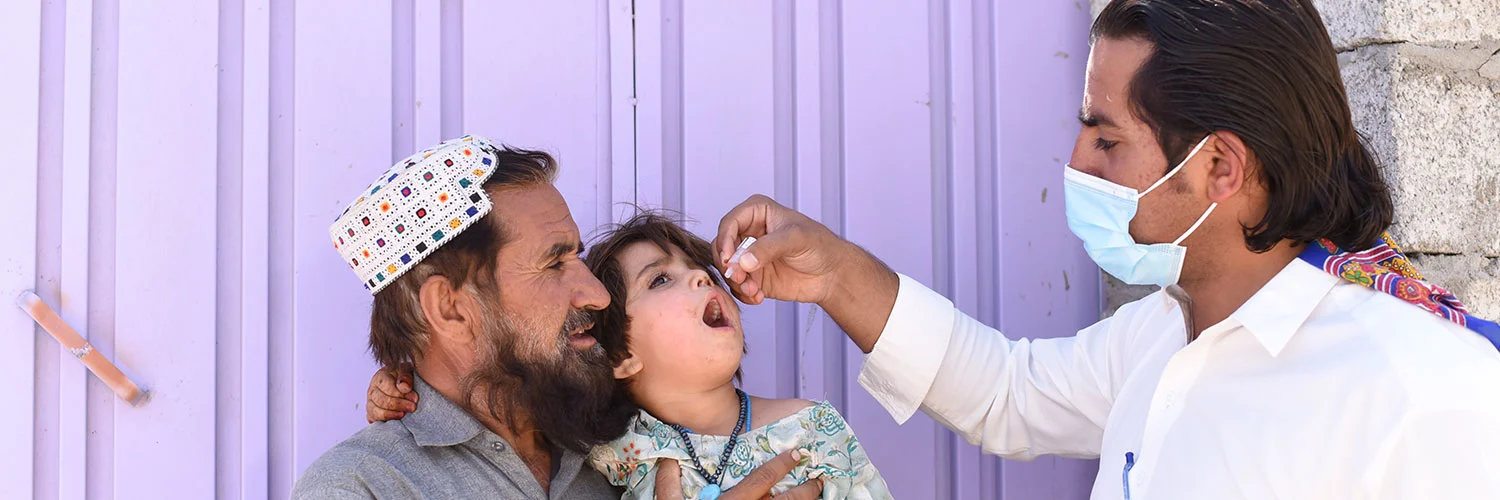Islamabad, June 4, 2015 - Polio experts from across Pakistan met this week in Islamabad to brief members of the Technical Advisory Group (TAG) on the progress being made in the drive to interrupt wild polio virus transmission in the country.
TAG members congratulated Pakistan on the recent gains made in reaching previously unreached children, improved vaccination quality and the use of innovations in the programme including IPV-OPV SIAs, Community Protected Vaccination and Health Camps.
Speaking on the second day of the meeting the TAG Chairman acknowledged the efforts of the programme to focus on recommendations from the last TAG including improving the quality supplementary immunization activities (SIAs) in key reservoir areas.
“We are in a completely different mood and approach to the programme than in February,” he said, “There is a significant drop in the number of polio cases and positive environmental samples recorded in Pakistan.”
TAG commended the FATA team on significantly improving access to children in South Waziristan, FR Bannu& parts of Khyber Agency, which allowed for the vaccination of thousands of people who were unvaccinated previously, noting the role of the military and political leadership has been key to success.
Improved access in Peshawar, KP, was commended and the innovative use of initiatives like Continuous Community Protected Vaccinators (CCPV) in Quetta and Female Community Volunteers (FCV) in Karachi, Sindh, has contributed to the programme’s recent shift.
The TAG noted that there was concern around both polio cases and positive environment samples in Northern Sindh and urged the continuous commitment to the Central Pakistan Strategy.
“The TAG is confident BUT there are major leaps to take to achieve eradication,” Jean-Marc said.
The meeting, held during a critical time in the push to eradicate polio in Pakistan, underlined thecrucial role of the National Emergency Action Plan (NEAP) in order to stop transmission and the importance for the programme to be ready to maximize activities from September this year.
The improved coordination and oversight of the programme was linked to the strong Emergency Operation Centres that have been established in all provinces but the TAG reminded the teams that continued support will be essential to fully implement the NEAP down to district and UC level .
Speaking on the occasion Muhammad Ayub Sheikh Secretary Ministry of National Health Services said Consistent with recommendation of last TAG meeting in February this year we had proactively pursued the matter of appointment of full time EOC Coordinators with the Provincial Governments with the result that we now have highly qualified, committed and dedicated full time professionals leading the EOCs who are bringing real change in the situation through their relentless efforts.
He said going forward, we are working on utilizing the National and Provincial Emergency Operations Centers for monitoring of routine immunization services. To this end, performance in routine immunization will be assessed based on a set of indicators. We need to move quickly to upscale routine immunization services in the country and this I believe would be a key measure in realization of the objective.
“We need to continue with our strategy of focus on missed children. Besides a number of measures that must have been elaborated by the Pakistan team, we are very close to finalizing a collaborative agreement with Survey of Pakistan to use appropriate technology in identifying missed areas and households. This measure holds a promise and will prove effective in reaching every eligible child” Secretary said.
He further said it would be critical to focus on quality over quantity of rounds. We need to have adequate time for preparation and aligning of operational plans with security and communication plan. There is no room for conducting a campaign as a ritual or merely going through the motions. Every campaign must be properly planned and effectively executed to achieve set goals.
He added that while the Government will continue to invest resources into the program being a priority public health initiative, we would request for support from our international partners in the shape of international grant assistance to cover the resource gap.

